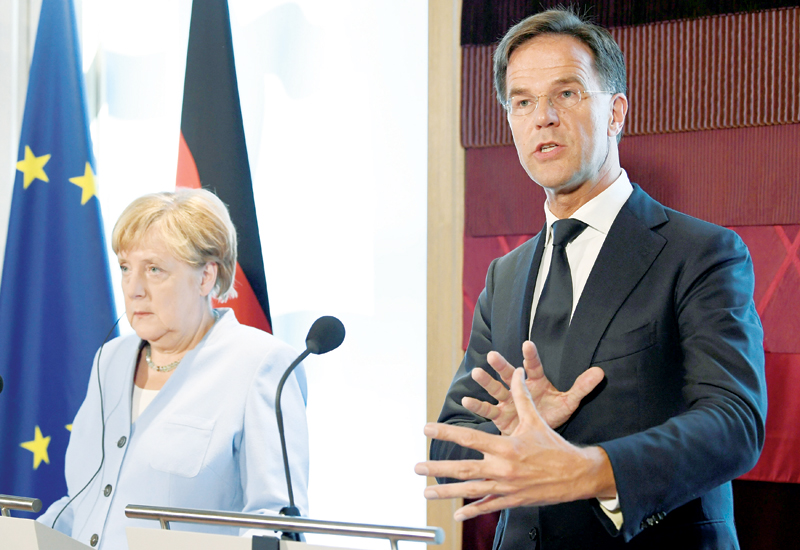

BERLIN/THE HAGUE: German Chancellor Angela Merkel was joined by her environment, economy and finance ministers on Thursday to meet Dutch Prime Minister Mark Rutte and members of his cabinet in The Hague to discuss carbon emissions and a possible carbon dioxide tax.
During their meeting, Merkel said she could support the Dutch suggestion that EU’s greenhouse gas emissions target be made more strict.
Merkel said she could “very easily go along with” changing the target to decreasing greenhouse gas emissions in the European Union by 55 per cent by 2030, compared to 1990 levels.
The current EU emissions target is to decrease greenhouse gas emissions by 40 per cent compared to 1990.
Merkel and ministers from climate-related portfolios — the environment, transportation, agriculture, building, economy and finance — are already aiming to finalise measures that will cut German emissions of greenhouse gases by 55 per cent by 2030.
Seeing as Germany is ready to commit to this goal, Merkel said her government would support a stricter EU rule. She also said that if that were to happen, it was important to make concrete goals.
The German government has also been grappling with the idea of taxing CO2 emissions ahead of the highly anticipated presentation of a package of climate measures by Merkel’s climate cabinet committee on September 20.
Germany is moving forward on the premise that CO2 emissions should become more expensive in order to incentivize a reduction in greenhouse gases and investment in new technology. But there are disagreements over whether that goal can best be achieved with a taxor by expanding the trade in pollution rights.
The chancellor has recently been sympathetic to broadening the system of carbon offsetting, which already exists at the EU level for the energy sector and some parts of industry. German Environment Minister Svenja Schulze, on the other hand, is in favour of raising taxes on diesel, petrol, heating oil and natural gas — more commonly known as a CO2 tax.
The Netherlands agreed on a national climate pact in June that aims to achieve a reduction in emissions of 49 per cent by 2030. The Dutch approach uses a mix of taxing and carbon offsetting.
Both countries have far to go to achieve their emissions targets. Germany has reduced its greenhouse gas output by 32 per cent since 1990 but will miss the 40-per cent target it set for 2020. The Netherlands achieved a reduction of only 13 per cent in 2017.
Ahead of the meeting, Schulze said Germany was eager to cooperate with its EU neighbours. — dpa
Oman Observer is now on the WhatsApp channel. Click here



